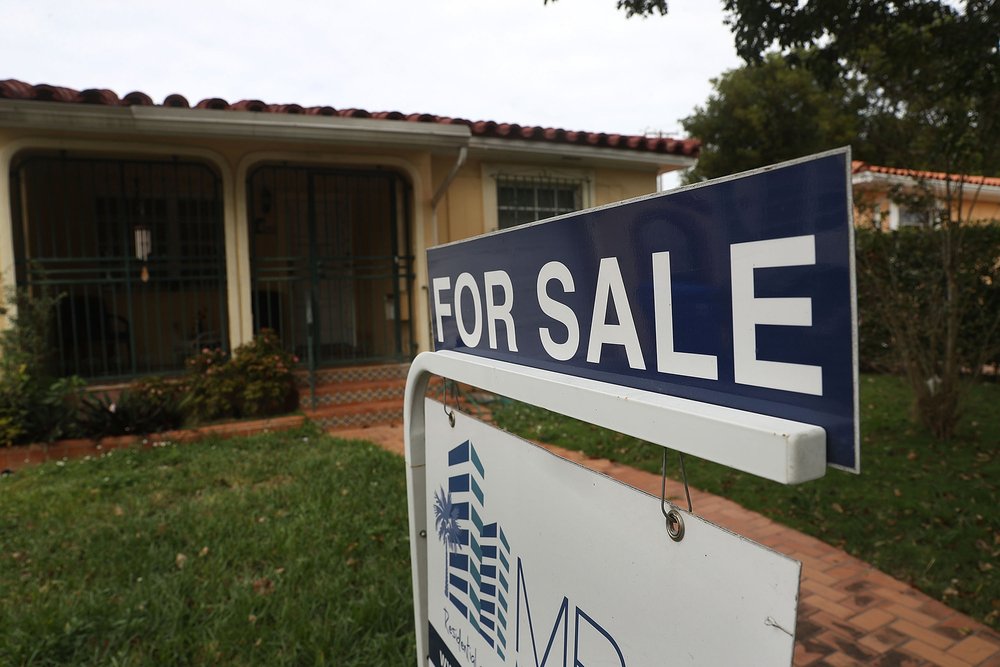Homeowners are in a serious rush to refinance their homes, as current trends dictate that mortgage rates will continue to catapult higher and higher this week from the previous week.
The new trend of highs appears to be delivering a message that it might be the final chance for borrowers to gain benefits from refinancing their homes.
Increase in Mortgage Applications
As a matter of fact, the volume of total mortgage applications rose by a whopping 2.9 percent from the previous week to this week. This is according to statistics revealed by the Mortgage Bankers Association index.
That being said, the volume was 15.5 percent less than what it was by week one last year, whereby interest rates were almost a full percentage lesser.
Nevertheless, refinancing applications for homes rose by 3percent from last week. It is worth noting though that it was still 34.5 percent lower than the same week the previous year.

Mortgage rate applications have increased by 2.9% as homeowners race to refinance their homes before the benefits of refinancing dwindle away
More Owners Eligible to Refinance
That being said, interest rates have been particularly low for quite a while to the point that a majority of homeowners eligible for refinancing have done so at record low rates.
For those looking to retrieve money from their homes, according to the current increase in equity and home values, higher rates have made it much easier to have a second loan rather than lose out with a low rate from the first mortgage.
As a matter of fact, if you have a 30-year fixed rate mortgage that has subsequent loan balances of about $450,000 or less), its value increased to 4.97 percent to 4.88 percent, the highest that the average contract interest rate has been since April 2011.
Additionally, points have also increased from 0.44 to 0.47 for loans that have down payments of about 20 percent (as well as the origination fee).
According to MBA economist Joel Kan, the rates have risen since last week as investors attempt to navigate past the US-China trade war and their subsequent tariffs.
Kan continues to state that the treasury produces 8 basis points a week, which shows that the growth outlook remains increasingly positive in the United States.

Affordability is a serious issue facing potential home buyers as the value of homes and real estate is increasing on an annual basis
A Stabilizing Real Estate Market?
Additionally, data collected on home sales and housing starts have seen a reprieve following a series of months where it yielded weak results.
That being said, mortgage applications directed to buy a home increased by 3 percent this week, subsequently being 4 percent higher with comparison to the same week roughly a year ago.
Additionally, more listings are entering the market, which could play a vital role in improving sales.
That being said, home prices are still pretty steep and continue to show an upward trend, although doing so at a slower pace compared to how they did the beginning of the year.
Nevertheless, the high demand for housing has not made the situation any easier, prompting mortgage volumes to be considerably higher.
That being said, the rising mortgage rates could be causing a serious dent at the affordability power of consumers.
In fact, data from Freddie Mac predicts that the total number of sales in 2018 could be slightly less than those of the previous year.

Over the years, the real estate market has experienced a seesaw effect due to a volatile economy that has seen the value of real estate soar through the roof
Affordability the Major Issue
According to Freddie Mac’s chief economist, Mr. Sam Khater, too many potential buyers are being discouraged by the fact that there is not an affordable supply of housing and the fact the current market has much higher mortgage rates coupled with home prices.
In response, prospective buyers are digging much deeper into their pocket or alternatively sacrificing their dream homes to purchase in areas where the need for demand is the highest. Which means focusing their purchase at the entry level of the market.
Nevertheless, as price appreciation begins to ease steadily back into the market, the weakening in affordability by consumers is still hindering overall economic growth and activity in the sector.
This could result in potential stalling of construction projects in the real estate sector, as the number of potential buyers plummets. In the long run, such a situation could have a catastrophic effect on the market. One that could potentially bring back bitter memories of the 2008 economic crash that hindered many broke and homeless, unable to afford decent housing.
